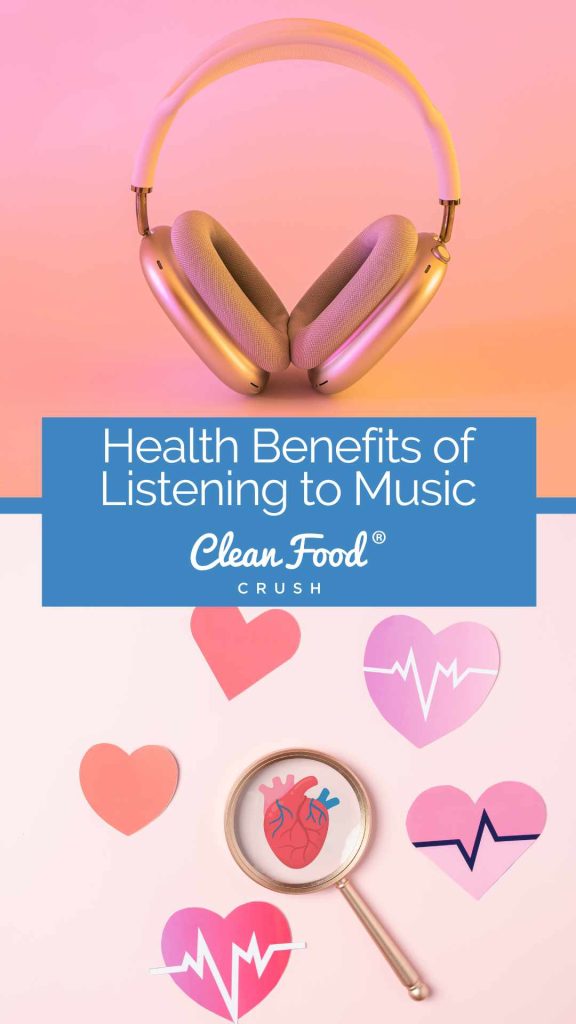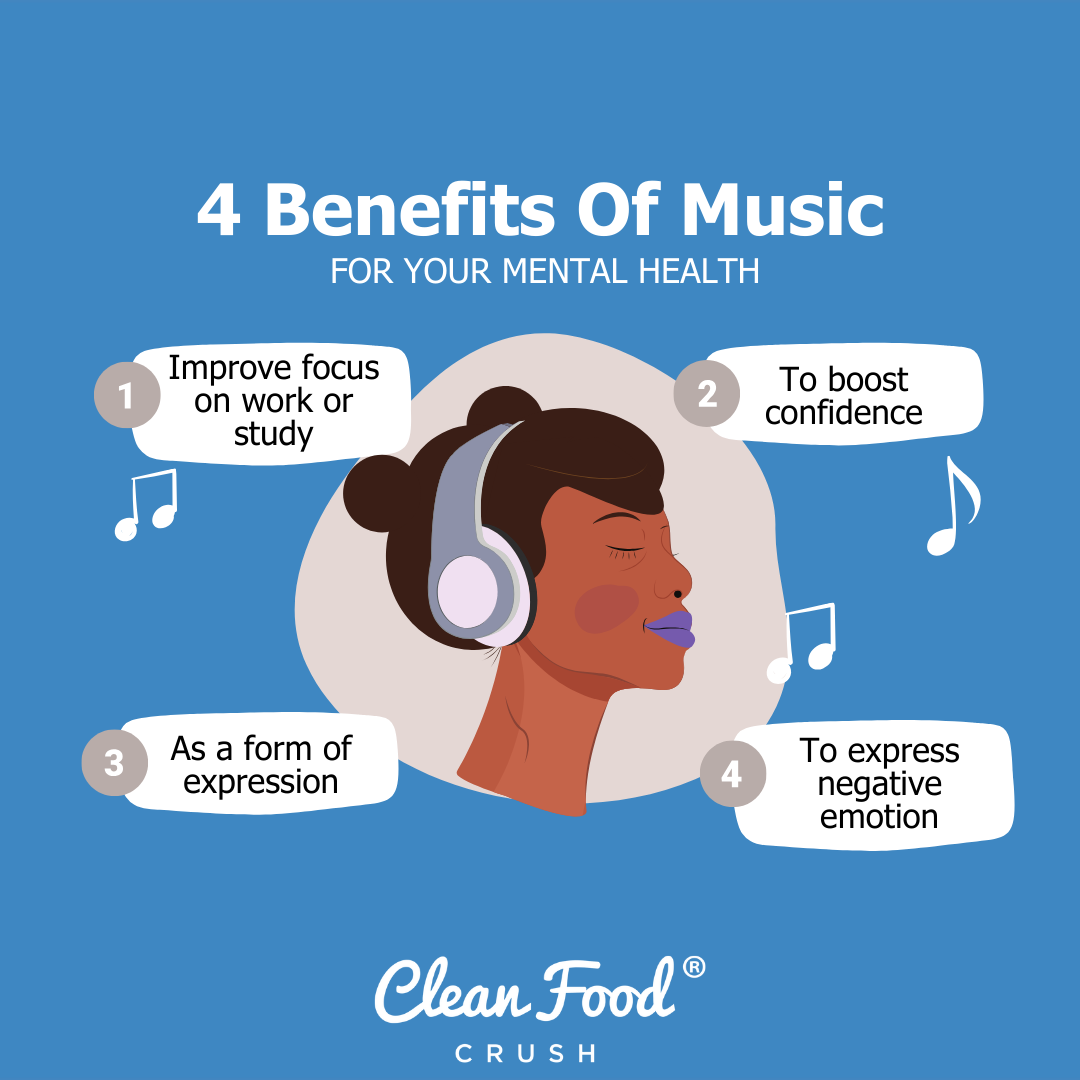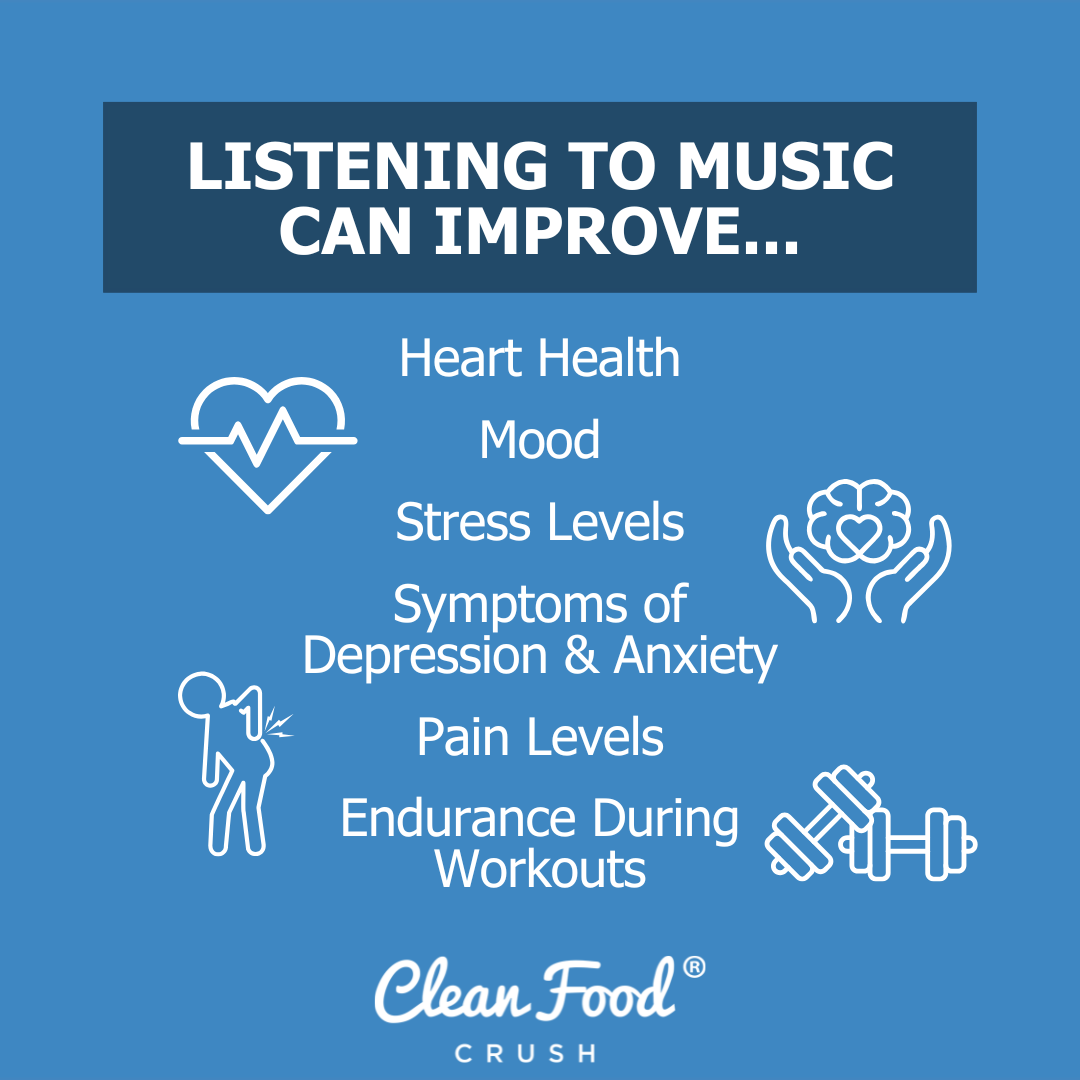This post contains affiliate links. Please see our disclosure policy.

Health Benefits of Listening to Music
It may seem like an odd connection… sure, listening to music can be fun and even part of our normal routines, but can it really benefit our overall health?
Many studies would answer with a definitive yes. We may not think much of listening to music in the car on the way to work, or while cooking dinner or doing housework, but it’s actually been proven that listening to music for specific activities and at certain times in life can have great benefits to your health.

Some things music can improve:

Research has shown that when you listen to music, your blood flows more easily, helping to reduce your heart rate, lower blood pressure, decrease cortisol levels (the stress hormone), and increase serotonin, endorphin, and dopamine (happy hormone) levels in your blood.
When you listen to music, biochemical stress reducers are triggered, which can decrease your overall anxiety levels. Music can also reduce the perceived intensity of pain, especially in geriatric and intensive care, as well as palliative medicine.
And of course, one of the more obvious examples of music boosting your mood is listening to it when exercising. Whether you’re gearing up for an intense workout or going for a five-mile walk, listening to music can put you in the right frame of mind to power through your workout and keep you motivated to finish.
A more in-depth look at the benefits of listening to music comes from the practice of music therapy. Much like other forms of therapy, such as talk or art therapy, music can be used to treat symptoms of patients suffering from depression, anxiety, and PTSD. Some studies even suggest that music therapy can improve the quality of life and social connectedness for people with schizophrenia.
Music therapists use both active (singing, instrument exploration, songwriting, and music creation) and receptive (music listening, guided imagery with music, playlist creation, or music conversation and reminiscence) interventions, and create goals to improve health and well-being.
Some of those goals can include decreasing anxiety, shifting your mood, decreasing pain perception during cancer or other medical treatment, increasing expression, and finding motivation for everyday or long-term tasks.
Doctors at Johns Hopkins say that listening to music physically stimulates your brain – they can actually see the active areas light up in MRI scans. Furthermore, listening to music has been shown to slow cognitive decline, particularly in those suffering from Alzheimer’s disease and dementia, helping them to remember certain episodes and time periods from their lives.
The act of listening to and playing music has existed for longer than you might think. Archaeologists discovered the oldest known flute, carved from the bone of a vulture’s wing, in southern Germany, dating back 40,000 years.
Some evolutionary scientists claim human beings may have developed a love and appreciation for music as both an art form and as a form of communication because our ancestors descended from arboreal species — tree-dwellers who called to one another across the canopy.
Clearly, music has made an impact on our society, spanning thousands of years and constantly evolving and adapting to new technology and innovation. While it may just be a fun or creative outlet for some, for others, its benefits go far beyond that, truly helping them to relieve stress, decrease depression and anxiety symptoms, and even lessen cognitive decline.
Do you enjoy listening to music? Have you noticed its health benefits in your own life? Tell me your favorite genres or artists and how music helps you below. Happy listening!


















